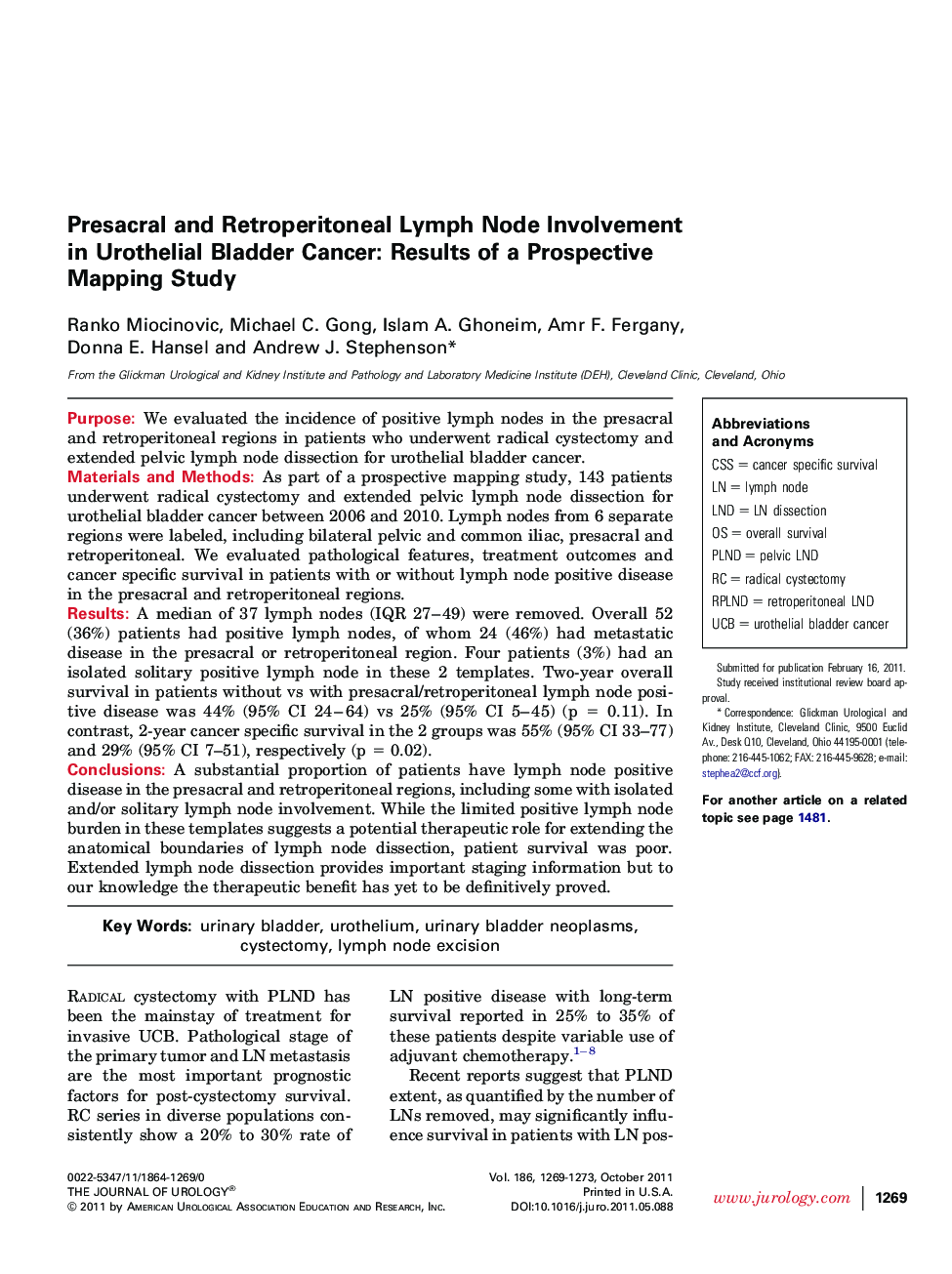| Article ID | Journal | Published Year | Pages | File Type |
|---|---|---|---|---|
| 3868456 | The Journal of Urology | 2011 | 5 Pages |
PurposeWe evaluated the incidence of positive lymph nodes in the presacral and retroperitoneal regions in patients who underwent radical cystectomy and extended pelvic lymph node dissection for urothelial bladder cancer.Materials and MethodsAs part of a prospective mapping study, 143 patients underwent radical cystectomy and extended pelvic lymph node dissection for urothelial bladder cancer between 2006 and 2010. Lymph nodes from 6 separate regions were labeled, including bilateral pelvic and common iliac, presacral and retroperitoneal. We evaluated pathological features, treatment outcomes and cancer specific survival in patients with or without lymph node positive disease in the presacral and retroperitoneal regions.ResultsA median of 37 lymph nodes (IQR 27–49) were removed. Overall 52 (36%) patients had positive lymph nodes, of whom 24 (46%) had metastatic disease in the presacral or retroperitoneal region. Four patients (3%) had an isolated solitary positive lymph node in these 2 templates. Two-year overall survival in patients without vs with presacral/retroperitoneal lymph node positive disease was 44% (95% CI 24–64) vs 25% (95% CI 5–45) (p = 0.11). In contrast, 2-year cancer specific survival in the 2 groups was 55% (95% CI 33–77) and 29% (95% CI 7–51), respectively (p = 0.02).ConclusionsA substantial proportion of patients have lymph node positive disease in the presacral and retroperitoneal regions, including some with isolated and/or solitary lymph node involvement. While the limited positive lymph node burden in these templates suggests a potential therapeutic role for extending the anatomical boundaries of lymph node dissection, patient survival was poor. Extended lymph node dissection provides important staging information but to our knowledge the therapeutic benefit has yet to be definitively proved.
